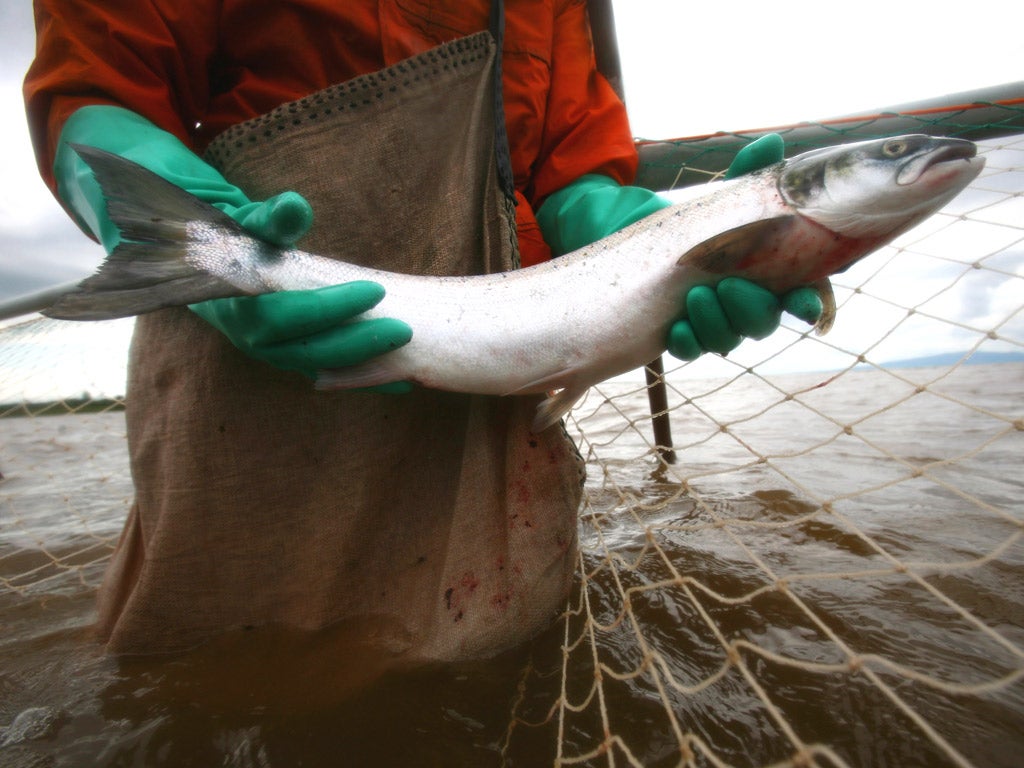EU ministers agree to overhaul fish dumping policy in bid to revive stocks
Greenpeace warn watered down proposals threaten the chances of reforming rules

European Union ministers have agreed to overhaul the bloc's fishing policy, but campaigners warned that the most ambitious aspects of the plan were under threat after member states watered down key proposals aimed at reviving stocks after decades of overfishing.
Environmental groups had in February hailed a vote at the European Parliament, which approved a raft of radical reforms including a blanket ban on discards, the controversial policy of tossing dead fish back in the sea if a fleet exceeds its quota.
But while EU fisheries ministers emerged on Wednesday after 36 hours of talks with a commitment to reforming the Common Fisheries Policy (CAP), they only agreed a partial ban on discards. They also refused to set a date for the restoration of fish stocks, a key demand of MEPs and campaigners.
The member states will now take their counter-proposals back to the European Parliament and try and reach a compromise. But the MEPs could refuse to back the proposals, extending what has already been three years of gruelling negotiations.
The environmental group, Greenpeace, warned in a statement that unless EU ministers were willing to budge on some aspects of the reform, the whole plan “will be thrown off course and threaten the chances of reforming fisheries rules in 2013”.
Ulrike Rodust, the European Parliament's chief negotiator, said they would examine the proposals ahead of the next round of negotiations at the end of this month.
"Ministers have made certain concessions but I would have liked to see a more courageous decision," she said. “I hope that we can come to an agreement... but I cannot guarantee that. This reform is too important for the environment and for the fishermen and therefore cannot be rushed."
About 80 per cent of Mediterranean stocks and 47 per cent of Atlantic stocks are overfished after decades of plunder by industrial fleets working under rules devised in the 1970s. Discards have been particularly divisive. The practice allows fleets to net quantities of fish exceeding their quota, then simply throw any unwanted dead fish overboard.
MEPs wanted a complete ban on discards starting from 2014, but the minsters yesterday agreed to a phased ban from 2015, while still allowing 5 per cent of the catch to be discarded.
“If implemented as such, poor management of our fish stocks and the knock on effect it has on our seas is likely to continue for yet another decade,” said Helen McLachlan, fisheries programme manager at WWF-UK
Some nations with large fishing industries such as Spain, Portugal and Greece had resisted any reform, and the British fisheries minister, Richard Benyon, said it was a step forward that those nations had budged at all. “Although it is not as ambitious as I would have liked, we have stuck to our key principles,” Mr Benyon said.
Other measures agreed include new limits on catches and the transfer of decision-making powers from Brussels to national fishing organisations.
Hugh Fearnley-Whittingstall, the British chef leading the Fish Fight campaign to revive fish stocks, said he hoped that the EU member states would move closer to the position of the parliament in the last stages of the negotiations.
“Hopefully it will be signed and sealed shortly so we can replace the current broken system as soon as possible,” he said.
Join our commenting forum
Join thought-provoking conversations, follow other Independent readers and see their replies
Comments
Bookmark popover
Removed from bookmarks